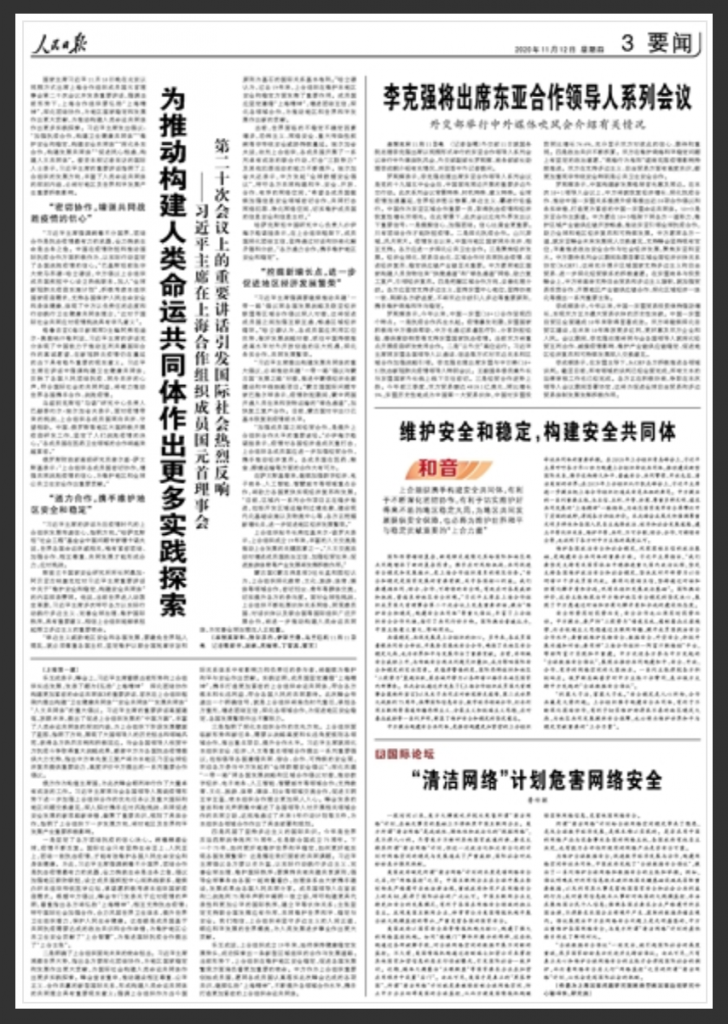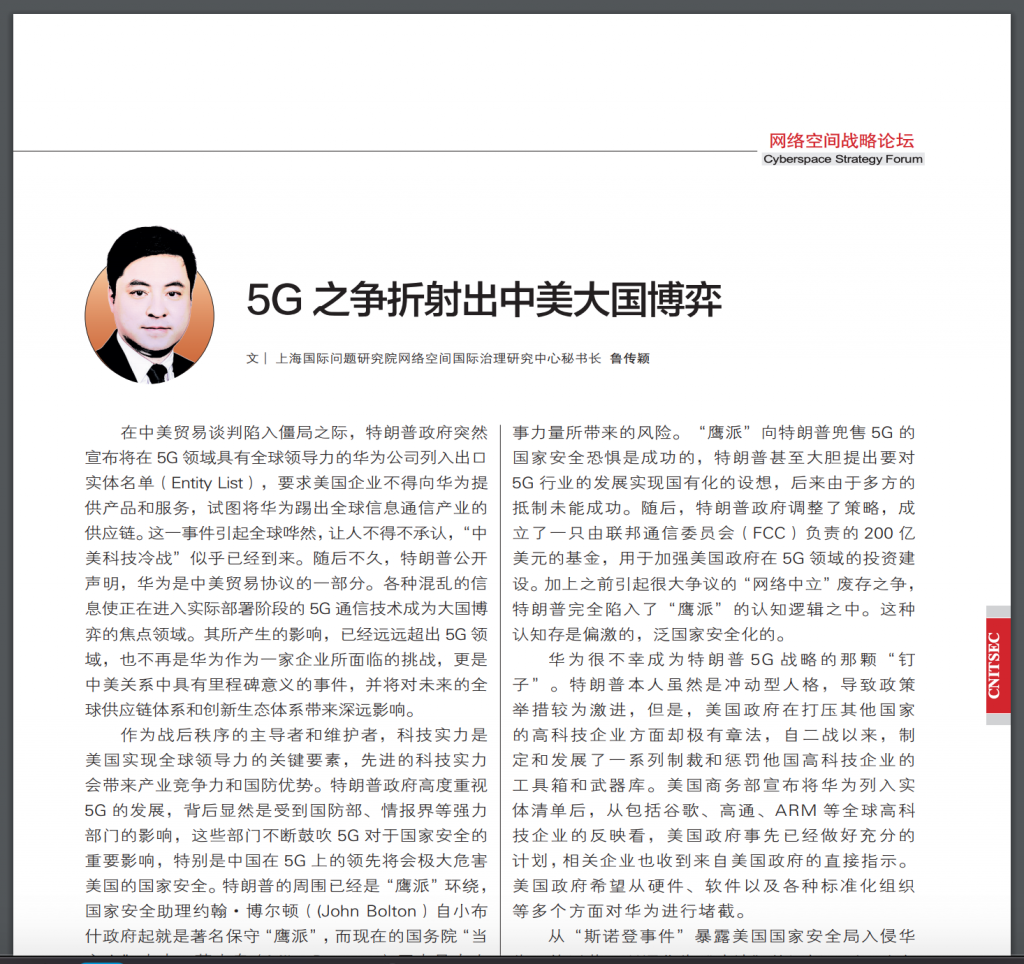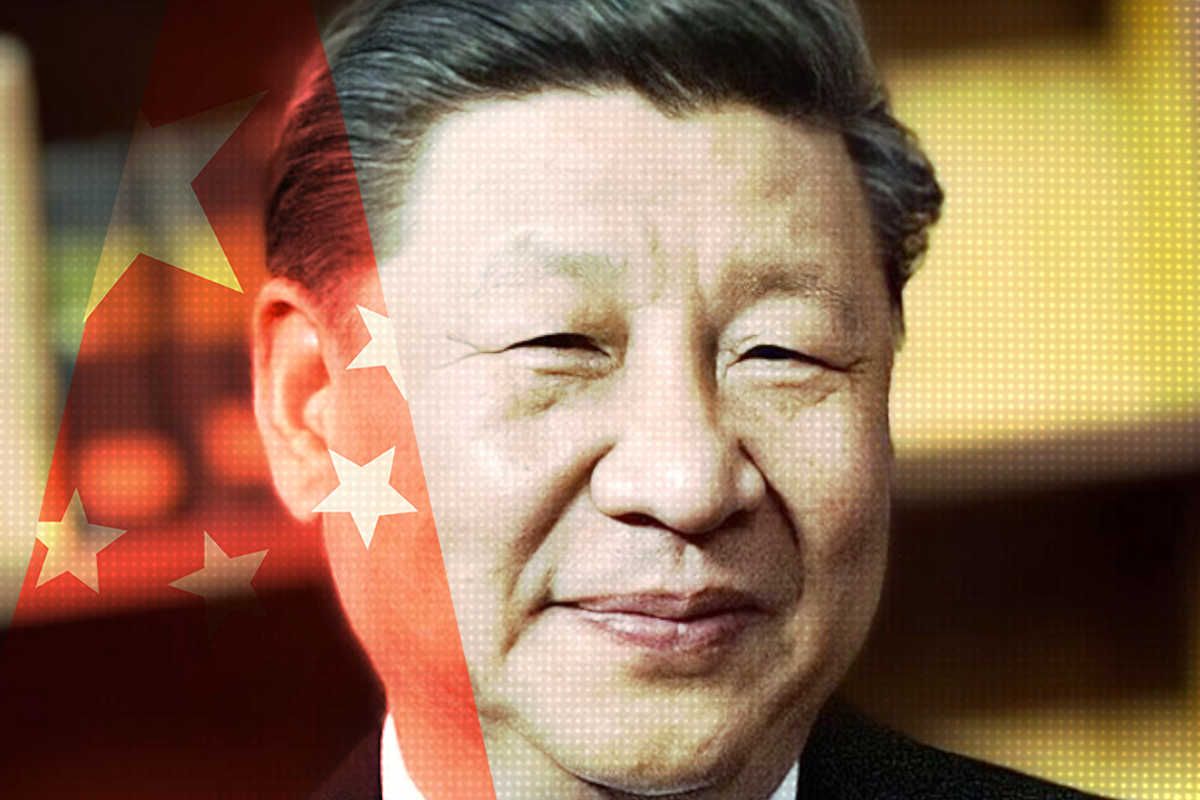Headlines and Hashtags
China Growls Over “Clean Network” Plan

US Secretary of State Mike Pompeo. Image by US Department of State available at Flickr.com under CC license.
In April this year, US Secretary of State Mike Pompeo announced the launch of the “Clean Network” program, which he called “the Trump Administration’s comprehensive approach to guarding our citizens’ privacy and our companies’ most sensitive information from aggressive intrusions by malign actors, such as the Chinese Communist Party (CCP).” The announcement followed months of strong lobbying by Pompeo and other US officials for allies in Europe and elsewhere to exclude “high-risk actors” from their 5G networks. Translation: Out with Huawei.
In September, China responded in kind with its “Global Initiative on Data Security,” a program Foreign Minister Wang Yi (王毅) portrayed as more multilateral than the US approach, taking into account the views of other countries. “Some individual countries are aggressively pursuing unilateralism, throwing dirty water on other countries under the pretext of ‘cleanliness,’ and conducting global hunts on leading companies of other countries under the pretext of security,” Wang said, implying but not openly mentioning the US. “This is naked bullying and should be opposed and rejected.”
As Rebecca Arcesati, an analyst at the Mercator Institute for China Studies, has observed, the timing of China’s announcement of its “Global Initiative on Data Security,” coming on the eve of the first High-Level Digital Dialogue between the EU and China, suggests it is keen to “present China as a trusted partner for the EU,” where the debate over China, 5G and network security continues unabated.
So far, however, there is little indication in global coverage of the Chinese initiative, including from Chinese state-run media, that it is gaining support.
Just two countries, Pakistan and Syria, seem to have voiced support for the “Global Initiative on Data Security.” Pakistan announced its support on September 15, The Nation newspaper quoting Foreign Office spokesperson Zahif Hafeez Chaudhri as saying that the proposal is “both relevant and timely.” Chinese state media enthusiastically relayed the news, reporting Pakistan’s DNA News Agency as saying that “Pakistan stands solidly with Iron Brother China after Beijing announced the Global Initiative on Data Security.” In late September, official outlets including Xinhua News Agency, the China Daily newspaper and CGTN reported that the Syrian government had “expressed support for the China-proposed Global Initiative on Data Security.” The news was also carried in the English-language Syria Times, affiliated with Syria’s Ministry of Information.
Support for the initiative from two other countries, Cambodia and Laos, has been reported only by China’s Ministry of Foreign Affairs on its official website, in strikingly identical accounts of visits by Wang Yi to both countries. The Cambodia-related release reads: “Cambodia appreciates and supports the Global Initiative on Data Security proposed by China, and will continue to cooperate with China in international affairs, and jointly maintain common interests, and safeguard regional and global peace and stability.” Meanwhile, the release on Wang’s visit to Laos noted simply: “Laos also supports the Global Initiative on Data Security proposed by China.”
Today, the face-off between the US “Clean Network” program and China’s “Global Initiative on Data Security” makes page three of the CCP’s official People’s Daily newspaper. The editorial is written by Lu Chuanying (鲁传颖), secretary-general and researcher at the Cyberspace International Governance Research Center (网络空间国际治理研究中心) of the Shanghai Institutes for International Studies (SIIS), one of China’s most important government-affiliated think tanks on foreign policy. As David Shambaugh has explained, SIIS, like many government institutions dealing with international affairs, performs a “dual function,” both projecting Chinese talking points (as part of a general “soft power” push) and “[collecting] views and intelligence from foreign experts and officials.”
The Cyberspace International Governance Research Center is a relatively recent addition to the SIIS family, having been formed in 2018, its role apparently to respond on international policy issues related to cyber-governance and cybersecurity.

In his editorial, Lu suggests that the “Clean Network” program proposed by the United States is a naked attempt to “carry out ‘cyber surveillance’ in the name of network security.” Raising the issue of past revelations of US-conducted surveillance, including the “Prism” program, Lu suggests that “Clean Network” would make global cyberspace a less secure place – the implication being that China’s proposal is the only means to a multilateral cybersecurity solution.
“The initiative demonstrates that China is open and candid on the question of cybersecurity, and that it prioritizes maintaining the cybersecurity of all countries, this being in stark contrast to the hypocrisy of the United States and its so-called ‘Clean Network’ plan,” Lu writes.
A full translation of Lu Chuanying’s page three article in the People’s Daily follows.
The ‘Clean Network” Plan Damages Cybersecurity (“清洁网络”计划危害网络安全)
By Lu Chuanying
For some time now, the United States has everywhere trumpeted and peddled its so-called “Clean Network” plan, seeking to discredit Chinese Internet companies without any foundation in fact. The so-called US “Clean Network” is a discriminatory, exclusive and politicized “filthy network,” and it cannot enjoy popular support. Even as the US continues to issue threat and promises to other countries, demanding they support this so-called “Clean Network” plan, this hyper-politicized and hyper-securitized plan poses a serious threat to the stability and development of cyberspace – and the international community has registered strong concern and opposition.
The essence of the US government’s so-called “Clean Network” plan is to carry out “cyber surveillance” in the name of network security. Chinese internet companies have always strictly abided by local laws and regulations when conducting business around the world, and they have prioritized the concerns of [local] governments and users when it comes to network security. This has been widely recognized by the international community. Chinese internet companies are in support of a more secure development model, benefiting the independence of countries in terms of cybersecurity. American internet companies, on the other hand, are often complicit in large-scale global surveillance conducted by US intelligence agencies, seriously endangering the national security of all countries.

The US government has built a powerful cyber surveillance apparatus, with agencies such as the National Security Agency at its core. As incidents such as “Prism Gate” have demonstrated, these institutions use various cracking methods to continuously monitor data in global cyberspace. Not long ago, the reprehensible actions of US intelligence agencies in using control of a Swiss encryption company to obtain encrypted information from other countries was exposed, prompting the unanimous condemnation of the international community. Recently, the media revealed that “Five Eyes” countries demanded that companies set up “backdoors” in encrypted applications. These [cases] demonstrate that the United States is the only real “Matrix.” The so-called “Clean Network” plan is about perpetuating the control of global cyberspace and preventing Chinese companies from obstructing US global surveillance – thereby aiding US intelligence agencies in the continued theft of online information and endangerment of cybersecurity in other countries.
The so-called “Clean Network” plan endangers the stability of global cyberspace and imperils the development of the global digital economy, goals that are fundamentally difficult to achieve. The question of whether to use Chinese network products and equipment concerns the cyber-sovereignty of all nations, and governments have a right to make their own decisions, and also the capability to determine whether or not the network products they use are safe and reliable.
In order to maintain global data security, promote the development and cooperation of the digital economy, and build a community of common destiny in cyberspace (网络空间命运共同体), the Chinese government has launched its “Global Data Security Initiative” (全球数据安全倡议) and advanced a series of measures and proposals for maintaining global network and data security. For example, the initiative clearly opposes the use of information technology to damage the critical infrastructure of other countries or steal important data, or its use to engage in acts endangering the national security or public interest of other countries. It opposes the abuse of information technology to engage in large-scale surveillance against other countries or illegally collect the personal data of individual citizen in other countries. [The initiative] emphasizes that all countries should require companies to strictly abide by the laws of the countries in which they operate (所在国法律), and must not force domestic companies to store data generated or collected overseas in their own country. The initiative demonstrates that China is open and candid on the question of cybersecurity, and that it prioritizes maintaining the cybersecurity of all countries – this being in stark contrast to the hypocrisy of the United States and its so-called “Clean Network” plan.
As soon as the “Global Data Security Initiative” was announced it attracted widespread attention from the international community, and many countries welcomed and supported the initiative. We can see clearly from this that only a proposition that genuinely cares about and preserves global cybersecurity will gain the support of the international community, and the so-called “Clean Network” plan, which conducts “network surveillance” in the name of cybersecurity, will inevitably meet resistance from the international community.





















